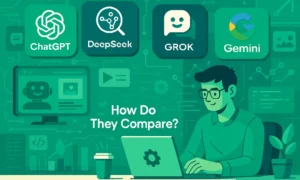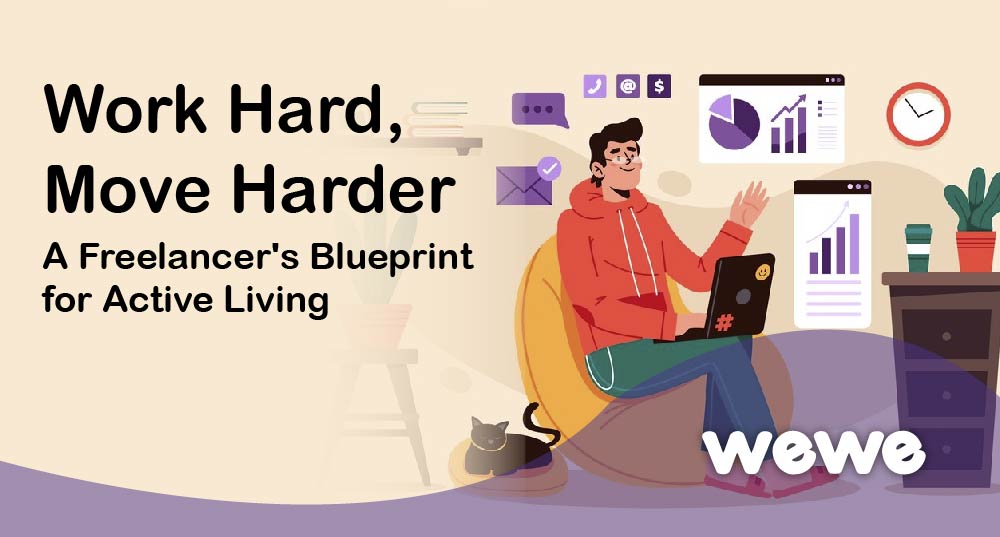
WeweBlogsSlider-02
Work Hard, Move Harder: A Freelancer’s Blueprint for Active Living
December 13, 2023Inspirations
In the world of freelancing, where the boundaries between work and personal life blur effortlessly, maintaining an active lifestyle can be challenging.
Why WeWe is the Ideal Platform for Connecting with Skilled Freelancers
March 21, 2025Guides & How-tos
The gig economy is booming, and businesses are increasingly turning to freelancers for flexible, high-quality talent. Whether you’re a startup looking for cost-effective expertise or a large company in need of specialized skills, finding the right freelancer can be a challenge. That’s where WeWe Talent Marketplace makes all the difference—bringing businesses and skilled freelancers together effortlessly. What is WeWe Talent Marketplace? WeWe Talent Marketplace is a dynamic freelance platform designed to simplify the process of hiring skilled professionals across various industries. With an intuitive interface, a vast network of verified freelancers, and an easy-to-use search feature, WeWe ensures seamless collaboration between businesses and independent professionals. Why Choose WeWe Talent Marketplace? 1. A Wide Range of Skilled Freelancers WeWe hosts a diverse pool of talent, from graphic designers and developers to digital marketers and business consultants. No matter the project, businesses can find freelancers with the exact skills they need. 2. Smart Matching Technology Unlike traditional job boards, WeWe’s smart-matching technology connects businesses with the best freelancers based on skills, experience, and project needs—ensuring the perfect fit every time. 3. Verified and Trusted Professionals One of the biggest concerns when hiring freelancers is trust. WeWe carefully verifies professionals, ensuring they meet quality standards. Reviews, ratings, and work history are transparently displayed to help businesses make informed hiring decisions. 4. Seamless Collaboration Tools WeWe is more than just a job-posting platform—it offers built-in collaboration tools, including secure messaging, a website builder, and milestone tracking. These features enhance communication and ensure smooth project execution. 5. Secure Payments and Transparent Pricing Payment security is crucial in the freelance economy. WeWe provides a secure payment gateway with escrow protection, ensuring that freelancers are paid fairly and that businesses receive quality work before releasing funds. Additionally, transparent pricing eliminates hidden costs and budget surprises. 6. Flexibility for Businesses of All Sizes Whether you’re a startup needing one-time assistance or a large enterprise managing multiple freelance contracts, WeWe caters to businesses of all sizes. The platform allows companies to scale their workforce up or down as needed—without the overhead costs of full-time employees. 7. Global Talent, Local Opportunities WeWe connects businesses with freelancers worldwide, making it easier to access global talent while also providing opportunities for local professionals. This flexibility allows businesses to choose between remote or region-specific freelancers depending on their project needs. How to Get Started on WeWe Specify the skills and expertise you need for the job. This helps filter applicants who don’t meet your requirements and saves you time in the selection process. 1. Sign Up & Create Your Profile Get started in minutes by creating a detailed profile showcasing your expertise or job requirements. 2. Post a Job or Find Work Employers can list job requirements, while freelancers can highlight their skills and services. 3. Get Matched & Collaborate WeWe’s advanced matching system connects businesses with the right freelancers. 4. Manage & Track Progress Use WeWe’s collaboration tools to ensure smooth workflow and project milestones. 5. Secure Payment & Completion Escrow-protected payments ensure fairness and quality assurance for all parties. Conclusion WeWe Talent Marketplace is revolutionizing the way businesses and freelancers connect. With its smart matching technology, secure payments, and a vast pool of skilled professionals, WeWe offers a seamless experience for both employers and independent workers. Whether you need expert assistance for a short-term project or ongoing freelance support, WeWe is the go-to platform for quality, trust, and efficiency.
Why Startups Should Outsource Early to Grow Faster
September 4, 2025Business Tips
Launching a startup is an exciting journey, but it’s also one filled with challenges. From product development to customer acquisition, founders are expected to juggle multiple roles with limited resources. The truth is, startups often don’t have the luxury of large teams or deep pockets. That’s where freelancers come in — the hidden growth engine for early-stage businesses. In today’s competitive market, outsourcing to freelancers isn’t just a cost-saving tactic; it’s a smart growth strategy. By leveraging freelance talent early, startups can accelerate their trajectory, focus on core strengths, and achieve faster scalability. The Startup Dilemma: Limited Resources, Big Goals Every startup faces the same constraints at the beginning: limited funds, small teams, and ambitious goals. Founders wear multiple hats, often stretching themselves too thin across product design, marketing, tech, and operations. While this may work in the very early days, it quickly becomes unsustainable. Hiring full-time staff too soon can be risky and expensive. Salaries, benefits, and long-term commitments often outweigh a startup’s budget. Freelancers offer the perfect middle ground — access to top skills on-demand, without the overhead. Why Freelancers Are Startup-Friendly 1. Flexibility Without the Overhead Freelancers allow startups to scale their workforce up or down depending on project needs. Whether it’s a three-month marketing campaign or a one-week website build, you pay for what you need, when you need it. 2. Access to Global Expertise Startups aren’t limited by geography when hiring freelancers. Platforms and networks make it easy to tap into talent pools across Asia, Europe, and beyond. This means startups can access highly specialized skills — from blockchain developers to UI/UX designers — without the challenges of local hiring. 3. Speed to Market Time is everything for a startup. Freelancers can be onboarded within days, helping founders execute projects faster than traditional hiring cycles allow. This agility often means beating competitors to market. 4. Fresh Perspectives Freelancers work with multiple clients across industries. They bring diverse insights, creativity, and solutions that in-house teams may not consider. This cross-pollination of ideas can spark innovation at critical stages of startup growth. Freelancer Success Stories in Startups Across Asia-Pacific and beyond, startups are proving how impactful freelancers can be: Content & Branding: Many young companies outsource content writing, graphic design, and branding to freelancers, ensuring professional storytelling without the expense of an agency. Product Development: Startups often hire freelance developers to build MVPs (minimum viable products), helping them test and iterate before committing to large-scale builds. Digital Marketing: From SEO experts to ad campaign managers, freelancers enable startups to reach audiences faster and more affordably than building an in-house team. Best Practices for Outsourcing as a Startup Define Clear Goals: Freelancers work best with clear briefs and measurable outcomes. Start Small: Test with one project to build trust before scaling engagement. Leverage Networks: Use trusted platforms or referrals to find verified professionals. Build Relationships: Treat freelancers as partners, not just contractors. Long-term collaboration yields better results. Outsourcing To Freelancers Early Startups succeed when they remain agile, resourceful, and focused on what truly matters — growth. Freelancers enable this by providing flexible, specialized, and affordable support exactly when it’s needed. In today’s fast-paced digital economy, outsourcing to freelancers early isn’t just a survival tactic — it’s a proven way to grow faster, smarter, and stronger. For startups looking to make their mark, freelancers aren’t just an option. They’re the spotlight.
Why Freelancers Should Think Like Micro-Startups
April 25, 2025Business Tips
In today’s fast-paced, digital-first economy, freelancers are more than just independent workers—they’re businesses in their own right. Whether you’re a graphic designer, developer, copywriter, or digital marketer, one truth applies: you’re not just offering a service; you’re building a brand. This is why successful freelancers are shifting their mindset. Instead of seeing themselves as gig workers, they’re operating like micro-startups—and thriving because of it. Here’s why you should too. You’re Not Selling Time—You’re Selling Solutions A startup doesn’t just sell code, content, or design—it sells outcomes. Likewise, freelancers who treat their services as products or solutions create more value. Instead of charging purely by the hour, ask: What result am I delivering? How does this project improve my client’s business? By focusing on outcomes and value, you can confidently raise your rates and build deeper, longer-term relationships with clients who see you as a partner—not just a vendor. Brand Matters—Even for One-Person Businesses Startups invest heavily in branding. Why? Because how you present yourself affects who you attract. The same goes for freelancers. Thinking like a micro-startup means: Defining your unique value proposition Building a strong portfolio website or profile Being consistent in your visual identity, tone, and communication Platforms like WeWe Talent Marketplace give you the tools to showcase your expertise—don’t waste the space. Treat every profile, pitch, and social post like it’s marketing for your brand. Systems Create Freedom Startups run on systems: onboarding flows, email templates, SOPs, and automation. As a freelancer, every hour counts—and having systems in place saves time and reduces stress. Consider creating: Client onboarding kits (welcome emails, questionnaires) Proposal templates Project timelines with built-in check-ins Tools like CRMs, Notion, or Trello can help you track projects like a pro. The result? More focus on deep work, less back-and-forth. Your Network Is Your Growth Engine Micro-startups don’t rely on cold leads alone—they grow through partnerships, word-of-mouth, and community. As a freelancer, it’s no different. Build relationships by: Collaborating with other freelancers Staying active on platforms like WeWe Talent Marketplace Asking for testimonials and referrals When clients trust you, they’ll come back. And when you’re part of a strong community, you’ll grow faster—with better leads and more support. Feedback Is Your Product-Market Fit Startups thrive by learning fast and iterating. For freelancers, every project is a chance to get feedback and improve your “product.” Don’t just finish a job and move on. Instead: Ask for feedback Reflect on what went well (and what didn’t) Use that insight to improve your service, communication, or pricing Over time, this feedback loop helps you refine your niche and stand out in competitive markets. Final Thoughts: Build Like a Business, Deliver Like a Pro Freelancing offers unmatched freedom—but it also requires focus, strategy, and growth. By thinking like a micro-startup, you’re not just chasing gigs—you’re building a business with long-term potential. At WeWe Talent Marketplace, we support freelancers who want to scale smarter. Whether you’re just starting out or looking to grow your client base, treat your talent like a brand—and your work like a business. Because in today’s world, the future of freelancing is entrepreneurial.
General
Latest Blog





All Blog






















